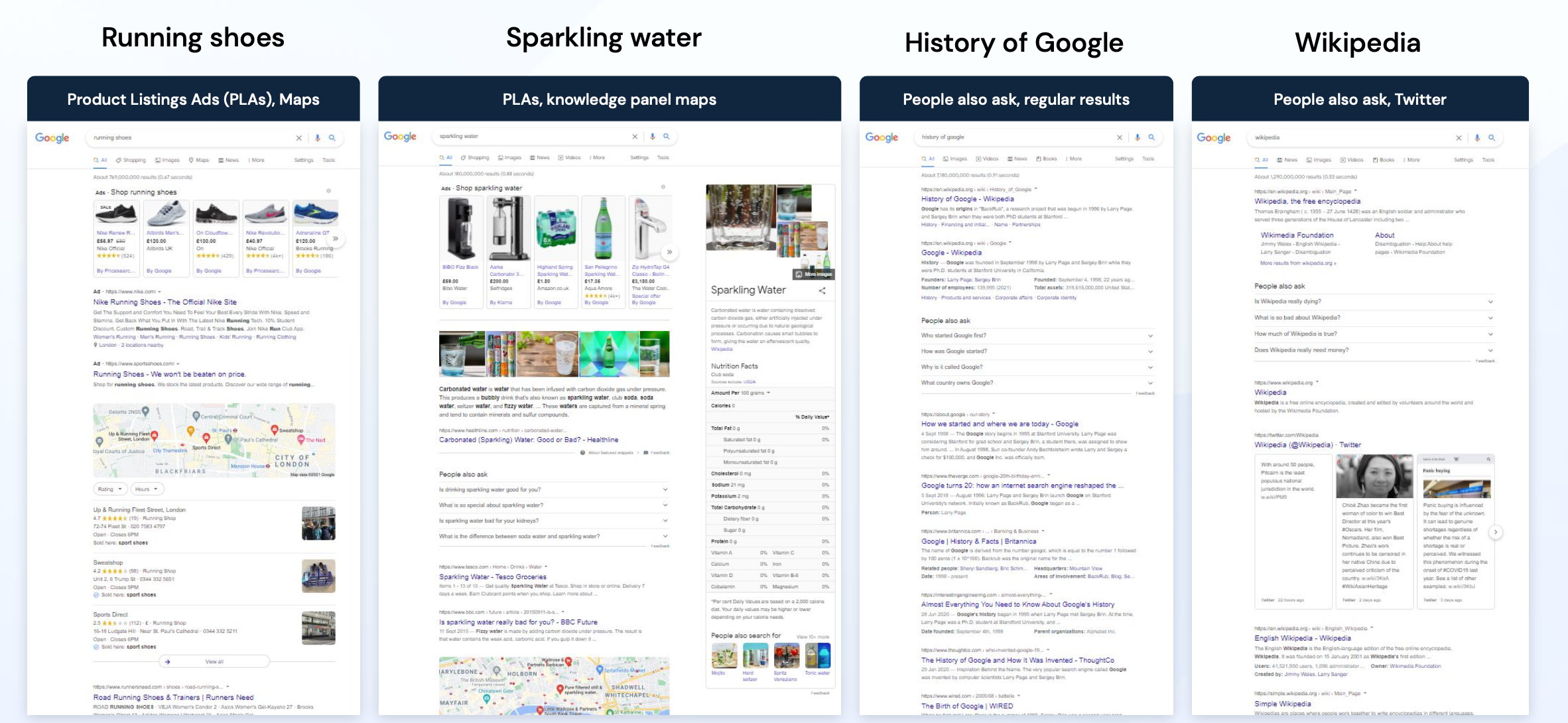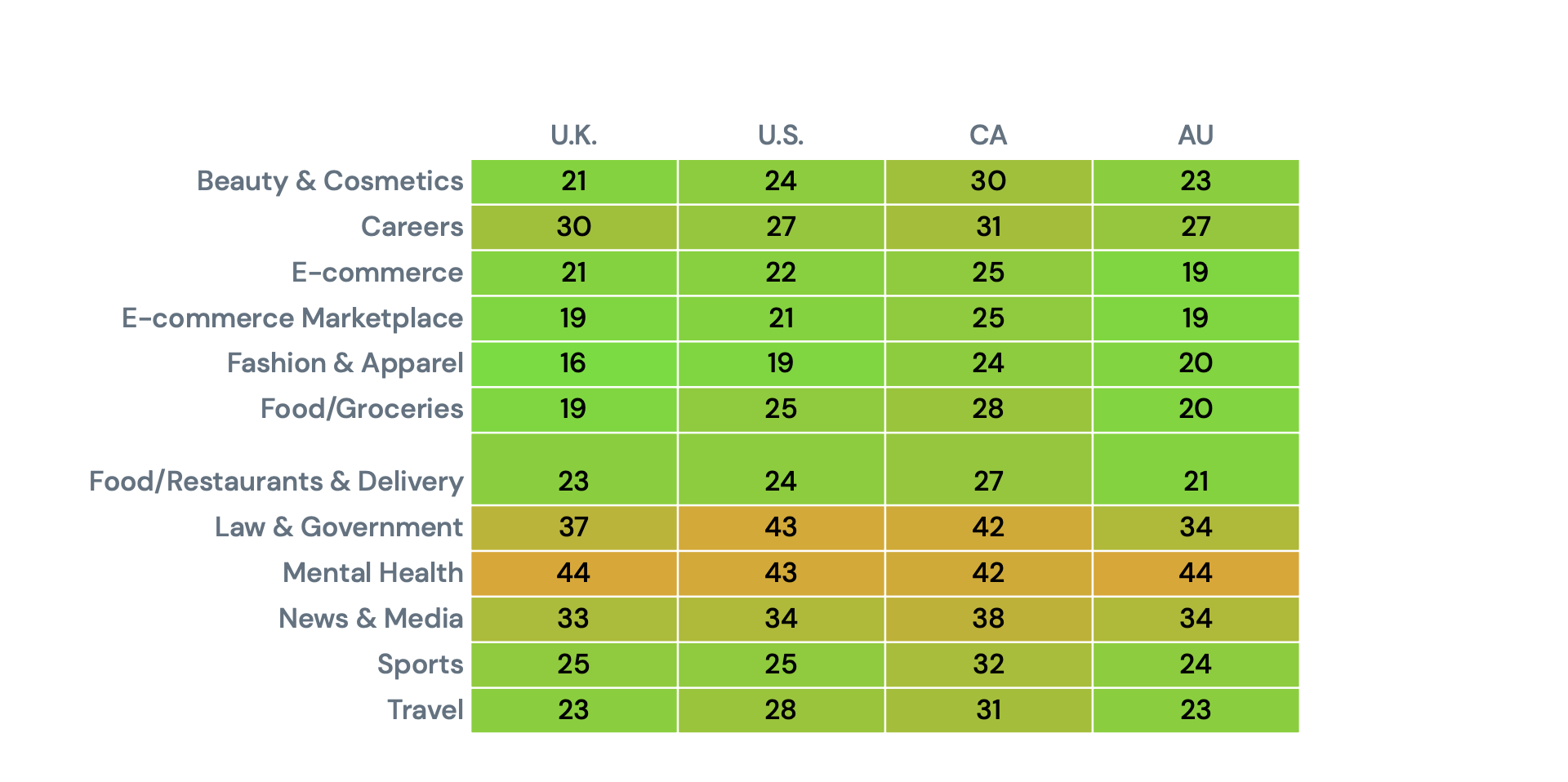How well do you understand your audience?
Do you know how they search and where they spend time online?
Which search trends and keywords should be a focus for your business this year?
By understanding how your customers search within your industry, you can put yourself in the best position to win over your competitors.
On May 4, I moderated a webinar by Gerald Murphy, Senior Solution Business Manager at Similarweb.
He showed SERP trends across regions, specifically in the U.S. and U.K., which could help you make more data-driven decisions.
Here is a summary of the webinar.
To access the entire presentation, complete the form.
Google Interface Trends You Need To Know
Knowing how each SERP is changing can help you uncover how to best align your content based on those SERP trends.
In today’s SERPs, it’s common for different keywords to have different SERP features.

So, it’s important to make sure you understand the exact SERP features that show up for different keywords.
When creating your strategy, identify both, the keywords and the corresponding SERPs that matter to your business.
How To Win In The SERPs
To win the SERPs, it’s important to know the role that your SERP feature plays in the overall journey of a searcher in order to be successful.
The Three Modes Of Searching
People searching on search engines typically use SERPs in this order:
Phase 1: Lookup
- Carefully specified queries.
- Yield precise results.
- Minimal need for result set examination.
Phase 2: Learn
- Requires cognitive processing & interpretation.
Phase 3: Investigate
- Multiple query iterations.
- Over long periods.
[Learn how to incorporate the searcher’s journey into your content] Instantly access the webinar →
SERP Features Per Industry
Now, we have an understanding of how SERP features are typically used by searchers on their journey.
It’s time to create your content based on the SERP features that display for your industry.
Let’s look at the “Big 3” SERP features, per industry:
- Ecommerce: PLAs, Images, Videos.
- Food and Drink/Groceries: PLAs, Local, Images.
- Sports: Twitter, News, Featured.
- Food and Drink/Restaurants & Delivery: Local, Knowledge, Related.
- Mental Health: Featured, Related, Instant Answers.
- Jobs/Careers: Jobs, Featured, Paid.
- Law/Government: Jobs, Featured, Twitter.
- Beauty/Cosmetics: Featured, PLAs, Video.
- Fashion: PLAs, Images, Paid
- News/Media: News, Featured Item, Twitter, Apps.
- Travel: Flights, Hotels, Local.
[Learn how to craft content for your SERP features] Instantly access the webinar →
Keyword Difficulty Per Industry
For this section, Keyword Difficulty is on a scale of 0 -100.
It measures how difficult it would be to rank on the top 20 results for a selected keyword.
- Easy: 0-20
- Little competition. Long-tail keywords usually sit here
- Best opportunities to rank (short term strategy)
- Moderate: 21-80
- More competition as the number increases
- Optimization strategy required (medium- to long-term strategy)
- Hard: 81-100
- Most competition, keywords usually have a lot of search volume
- Lots of effort required
Keyword Difficulty Summary & Comparison

[Discover your 2 most important industries to look at] Instantly access the webinar →
So as brands, you should never be just saying, for example, let’s do product lesson ads globally for all of our shoes –it won’t be a good strategy.
You want to make sure that you’re analyzing keywords relevant to your audience within a particular market to win.
Key Takeaways
- SERP Features have evolved a lot, particularly in recent years.
- Images, related questions, searches, and organic in-links are very common SERP Features.
- Look for your SERP Features.
- Industry insights unlock opportunities.
- News & Media is the most advanced industry for SERP features.
- Instant Answers and Local are more prominent in U.S. vs. U.K.
- Food & Groceries is the easiest to rank for in the U.K. vs. U.S. and CA.
[Slides] SERP Trends & Top Keyword Data By Industry
Here’s the presentation:
Join Us For Our Next Webinar!
The State of AEO & GEO in 2026: Forecast, Investments, & Strategies
In this webinar, Conductor’s Pat Reinhart, VP of Services & Thought Leadership, and Lindsay Boyajian Hagan, VP of Marketing, provide exclusive insights and commentary from The State of AEO/GEO in 2026 Report.
Image Credits
Featured Image: Paulo Bobita/Search Engine Journal


